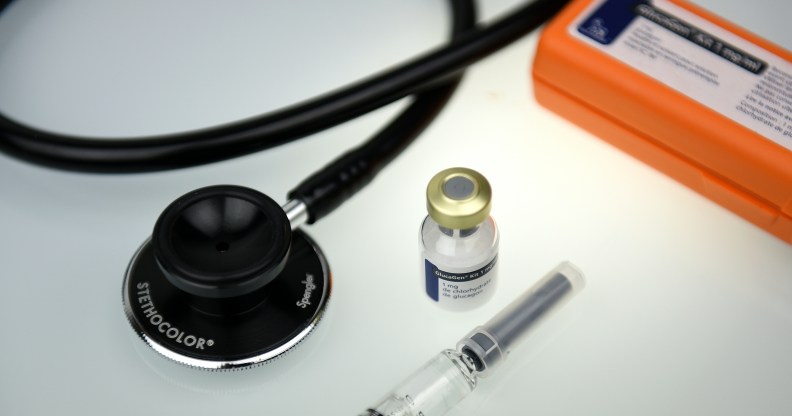Scientists are working on a new type of HIV drug that only needs to be taken once a month

File photo of a syringe (FRANCK FIFE/AFP/Getty)
A group of scientists are working on simplifying treatment options for people with HIV with a new injection that only has to be taken once a month.
Monthly injections for people with the virus were trialled as part of a new study and researchers found that they had a similar success rate to current model of daily pills.
The study’s findings were presented in an article in New England Journal of Medicine by Chloe Orkin and colleagues.
“Prolonged daily regimens can engender dissatisfaction, contribute to stigma, and increase the risk of non-adherence to treatment and treatment failure,” the authors wrote, according to Medpage Today.
“Surveys indicate that many patients would prefer therapeutic alternatives.”
The study found that those taking monthly injections experienced similar outcomes to those taking daily pills.
The study sought to determine the efficacy of long-lasting HIV injections compared to traditional daily pills usually taken by people with the virus.
Notably, the study found that participants who received monthly injections had a similar success rate at keeping their viral load down as those who took daily pills.
Prolonged daily regimens can engender dissatisfaction, contribute to stigma, and increase the risk of non-adherence to treatment and treatment failure.
For the phase three trial, HIV-positive adults who had previously not received any antiretroviral therapy were put on daily drugs for 20 weeks.
Those who had a reduced viral load, which refers to the amount of the virus in the blood, after 16 weeks were randomly assigned to either continue on daily drugs or move to a monthly injection.
83 per cent of HIV patients on monthly injections were still virally suppressed 160 weeks into the trial.
Of 566 people, 283 moved to monthly injections and 283 stayed on daily oral therapy. Participants in the study had a median age of 34 and 22 per cent were women, and three quarters were white.
Researchers trialled two types of monthly injection called cabotegravir and rilpivirine. 160 weeks into the trial, 83 per cent of HIV patients on monthly injections were still virally suppressed. This was a similar success rate to those taking daily drugs.
If the monthly injections successfully make it through trial stages, they could present alternative treatment options for people with HIV who struggle with adherence to daily drugs.
However, six per cent of those on monthly injections experienced serious adverse effects compared to four per cent of those taking daily drugs. Some participants also reported having reactions on the skin around the injection and others reported headaches and upper respiratory tract infections.

